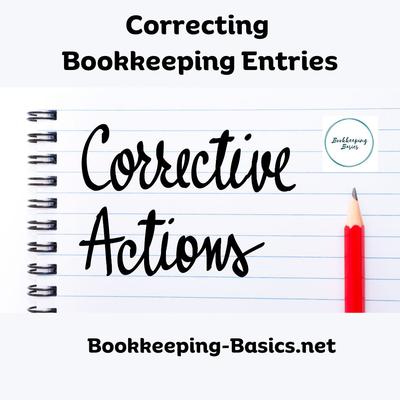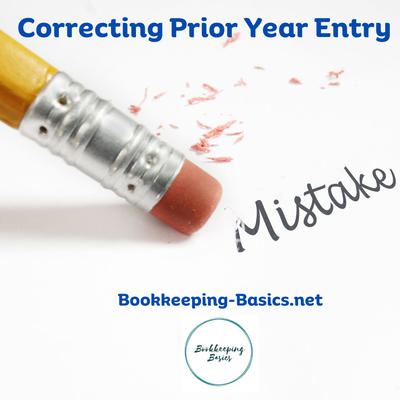- Home
- Questions and Answers
- Correction Procedure Bookkeeping Question
Correct These Bookkeeping Entries
Nigel mistakenly recorded a £500 vet fee for his daughter's horse as an office expense. What is the correct accounting entry for this transaction?
For a week in June 2009, work was billed as follows:
Net: £4000
VAT: £700
Gross: £4700
The gross and net amounts were accurately posted to the sales and general ledgers. However, the VAT was not accounted for. How should this VAT amount be correctly entered?
Comments for Correct These Bookkeeping Entries
|
||
|
||
Correcting Prior Year Entry After Books Closed
Yearly escrow fees for a rental condo are booked into a current asset acct. At year end the actual taxes paid from the escrow acct are reclassed to an expense acct - Property Taxes. In prior year we failed to reclass the taxes paid to the expense acct.
Our accounting software will not allow us to go back into a prior year once the year has been closed. Is it possible to correct the entry in the next year (it is still open on our books) using a suspense acct or something?
Comments for Correcting Prior Year Entry After Books Closed
|
||
|
||
|
||
|
||
|
||
|
||
Correction Procedure Bookkeeping Question
What are the correct accounts for remitting EI, CPP and Tax? Employees EI is $49.13, Employers EI portion is $68.78. Employees CPP is $62.78, same for Employers portion. Tax is $40.00. Are there both liability accounts and expense accounts that should be posted to?
Comments for Correction Procedure Bookkeeping Question
|
||
|
||
Please subscribe to my monthly newsletter, Bookkeeping Basics E-zine. It tells you every month about the new information that I have added, including some great tips and advice from myself and other Bookkeeping Basics readers.
Like Bookkeeping-Basics.net?
- Home
- Questions and Answers
- Correction Procedure Bookkeeping Question















